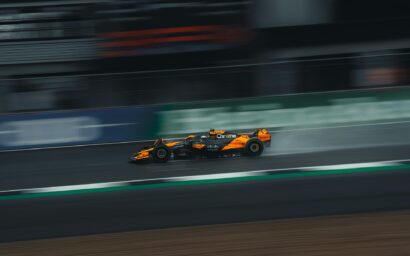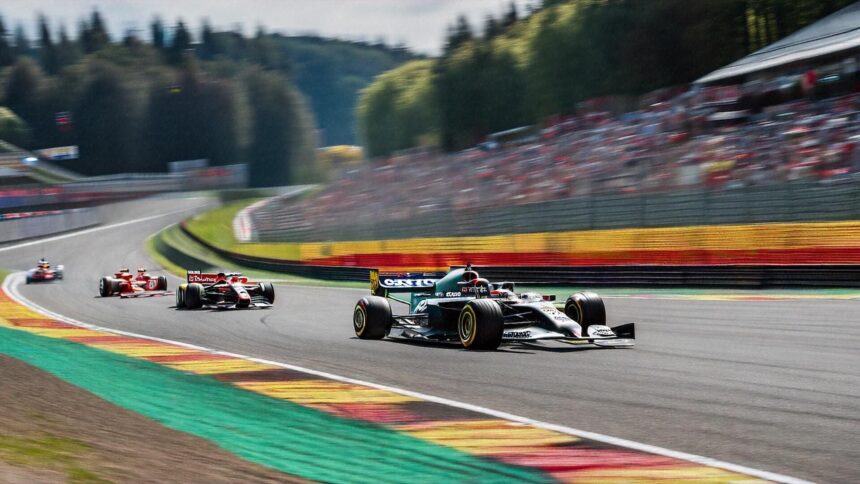
 F1 Betting Tips & News
F1 Betting Tips & News
The debate rages on in pubs, living rooms, and race tracks across the world, who’s the greatest F1 driver of all time? It’s the question that sparks heated arguments among motorsport enthusiasts everywhere. Lewis Hamilton’s incredible journey from a kid in Stevenage to F1 superstar has thrown his name firmly into the hat, with statistics that make even the most skeptical fan raise an eyebrow.
I’ve been following F1 since the Schumacher glory days, and honestly, comparing these titans isn’t straightforward. Schumacher’s Ferrari dominance redefined what we thought possible in the sport. Yet here’s Hamilton, breaking records many thought unbreakable. And now Verstappen? Four championships already! The kid’s barely older than my leather jacket.
Let’s dive into what makes these drivers so special, those heart-stopping moments that defined careers, and try to untangle this gloriously complicated question of who truly deserves motorsport’s reigning crown.
Lewis Hamilton’s Career Highlights: A Record-Breaking Legacy
Remember when Hamilton rocked up to his first F1 race in 2007? The pressure was immense, McLaren had bet big on this rookie. What happened next? He nearly won the championship in his FIRST season! Missed out by just one point. Unbelievable.
The following year, that nail-biting finale in Brazil still gives me goosebumps. Hamilton overtook Timo Glock on the very last corner to snatch the championship by a single point, you couldn’t write this stuff.
His move to Mercedes raised eyebrows. “Career suicide,” some called it. Mercedes wasn’t exactly dominating back then. But boy, did that gamble pay off. From 2014, Hamilton and Mercedes rewrote the F1 history books together.
The numbers are staggering:
- 105 wins (more than anyone else, ever)
- 104 pole positions (another record)
- Races won in 30 different countries (the man’s a global phenomenon)
- Seven world titles, matching Schumacher’s record
What’s even more impressive? He’s won races in practically every season he’s competed in. Rain or shine, front of the grid or fighting through the pack, Hamilton delivers. The Turkish Grand Prix in 2020 was an absolute masterclass in the wet, nursing those worn intermediates like they were made of gold.
Defining Greatness: What Makes an F1 Driver the Best?
So what actually makes a driver the greatest? It’s not just about trophies gathering dust on a shelf, it’s about the legacy.
Championships matter, obviously. Hamilton and Schumacher both have seven, putting them in a league of their own. But how they won those titles tells different stories.
Looking at raw speed, Hamilton’s qualifying record speaks volumes. The man can pull a lap out of nowhere when it matters most. 104 pole positions isn’t just a number, it’s evidence of outright pace that few can match.
Adaptability separates the good from the great. Hamilton thrived through V8 engines, hybrid power units, and countless regulation changes. Some drivers excel in one era but struggle when the rules change. Not Lewis.
Consider the competition they’ve faced. Hamilton’s battled against a murderer’s row of champions, Alonso, Räikkönen, Button, Vettel, Rosberg, and now Verstappen. Beating one champion is impressive. Beating multiple champions across different eras? That’s something else entirely.
Then there’s the car factor. Yes, Hamilton’s had some magnificent Mercedes machines. But even Schumacher had those untouchable Ferraris. Great drivers make the most of great cars, that’s just how F1 works.
Last but certainly not least, the weather test never lies. Watch a wet race and you’ll see who’s really got magical control. Hamilton’s wet-weather drives at Silverstone 2008 or Turkey 2020 weren’t just victories, they were masterclasses in car control.
Lewis Hamilton vs Michael Schumacher: Who Comes Out on Top?
This is where it gets tricky. Two giants, seven titles each, but such different paths.
Statistically, Hamilton’s ahead:
- 105 wins to Schumacher’s 91
- 104 poles to Schumacher’s 68
- More podiums, more points
But raw numbers don’t tell the whole story, do they?
Schumacher literally transformed Ferrari. When he joined in 1996, they were struggling. By the time he was done, they were an unstoppable force. Five consecutive titles from 2000-2004, that’s not just winning; that’s redefining dominance.
Their driving styles are like night and day. Schumacher was ruthlessly aggressive, sometimes crossing lines that made stewards reach for their rulebooks. Hamilton’s generally cleaner and more precise, though he can certainly get his elbows out when needed.
Team dynamics played out differently too. Schumacher had clear number one status at Ferrari, Barrichello and Irvine knew their roles. Hamilton’s team faced stronger internal competition: Alonso, Button, Rosberg, now Russell. He’s had to fight on multiple fronts.
The cars matter too. Ferrari’s early-2000s dominance was arguably more complete than Mercedes’ in the hybrid era. Some seasons, like 2002 and 2004, Schumacher was practically unchallenged. Hamilton had closer fights, especially in 2017 and 2018 against Ferrari.
Their impacts extend beyond the track. Schumacher revolutionised driver preparation, his fitness regimen became the template for modern F1 drivers. Hamilton has broken barriers as F1’s first Black champion and used his platform to push for diversity in motorsport.
Max Verstappen: The Future GOAT?
The flying Dutchman has thrown a spanner in the works of this debate. At just 27, Verstappen’s already got four world titles, the same number as Alain Prost and Sebastian Vettel achieved in their entire careers.
His story has got that same magic ingredient: precociousness. Debuting at 17 (they literally had to change the rules afterward), winning his first race in a Red Bull at 18. That just doesn’t happen without extraordinary talent.
After that controversial first title in 2021, he’s been unstoppable with three more championships on the bounce. His 2023 season was simply ridiculous, breaking record after record with barely a challenger in sight.
The numbers are building rapidly:
- 63 wins from 209 races
- A win percentage of 30.1% (even better than Hamilton’s!)
- Already 4 consecutive world championships
His driving style is absolutely fearless. Sometimes too fearless, his critics would say. But there’s no denying his car control, especially in the wet. The way he found grip at Brazil 2016 defied physics.
What makes Max’s case intriguing is that he’s ahead of where Hamilton was at the same age. By 27, Hamilton had one title. Verstappen has four. If he keeps this trajectory for another decade, the record books might need rewriting again.
The question is sustainability. Can he adapt to new regulations? Will Red Bull maintain their advantage? Can he handle stronger teammates? The next five years will tell us a lot about Verstappen’s ultimate place in the pantheon.
The Greatest Moments of Hamilton’s Career
I still remember jumping off my sofa when Hamilton crossed the line in Brazil 2008. That final corner he overtook Glock to win his first championship by a single point, unreal drama.
His wet-weather masterclasses define his career. Silverstone 2008 was otherworldly, winning by over a minute in treacherous conditions, lapping almost the entire field. Turkey 2020 was similar genius, nursing worn intermediates when everyone else pitted, securing his seventh title with a drive of measured brilliance.
The battles with Rosberg were intense. Bahrain 2014 stands out, wheel-to-wheel racing lap after lap, teammates on the edge but giving each other just enough space. Proper racing.
His recovery drives show his versatility. Germany 2018, starting 14th and winning as rivals crashed out in changing conditions. Brazil 2021 was even more impressive, fighting from the back of the grid after a disqualification to take victory.
What about Silverstone 2021? That controversial collision with Verstappen taking a 10-second penalty but still winning. Love it or hate it, that showed his determination.
Off-track, his evolution has been fascinating. From the flashy youngster to the thoughtful veteran using his platform for change. The Hamilton Commission and Mission 44 show a man thinking beyond his own career, trying to create pathways for underrepresented groups in motorsport.
The longevity is staggering. Fifteen years at the top of F1 requires constant reinvention. Different teammates, different regulations, different rivals, and Hamilton’s adapted to them all.
The GOAT Verdict: Does Hamilton Take the Crown?
Here’s where opinions get heated. The stats favour Hamilton: more wins, more poles, equal championships. He’s achieved this against multiple world champions across different eras of F1.
His adaptability is remarkable. Winning with McLaren and Mercedes, across multiple regulation changes, shows versatility that few can match. Even in challenging seasons for Mercedes, he’s extracted results from difficult cars.
Schumacher revolutionised how drivers approach F1. The fitness, the technical feedback, the team building, his five consecutive titles remain a benchmark of dominance. That Ferrari dynasty was his creation.
Verstappen’s incredible win rate and four consecutive championships suggest his ceiling might be even higher. If he maintains this form for another decade, this conversation could look very different.
Fans split predictably. Those who grew up watching Schumacher demolish the field in the early 2000s often favour the German. Newer fans who’ve witnessed Hamilton’s achievements naturally lean his way. Then there’s the Senna romantics, who believe his life was cut short before he could achieve his full potential.
Even former drivers disagree. Alonso and Button, who raced against both Hamilton and Schumacher, have acknowledged Lewis’s exceptional talents. Jackie Stewart often points to Juan Manuel Fangio’s five titles in a more dangerous era as the benchmark.
The truth? This debate has no definitive answer. Each era brings different challenges, regulations, and competition. Hamilton’s statistical dominance makes a compelling case, but F1 isn’t just about numbers.
Perhaps the greatest compliment is this: in 50 years, fans will still be arguing about whether Hamilton, Schumacher, or Verstappen was the greatest. That’s the mark of true greatness, sparking passionate debate long after the checkered flag falls.
In Short…
Lewis Hamilton’s journey from karting prodigy to F1 legend has been nothing short of extraordinary. Seven world championships, 105 wins, and counting, he’s rewritten what we thought impossible in modern Formula 1.
Schumacher’s legacy remains equally towering, his Ferrari dominance and revolutionary approach to the sport setting standards that drivers still aspire to match. Verstappen’s meteoric rise suggests the GOAT conversation will continue evolving as his career progresses.
The beauty of this debate is that there is no wrong answer. Your view depends on what you value most, raw statistics, transformative impact, or pure driving brilliance? Each driver brings something unique to the table.
What’s undeniable is that Hamilton belongs in this conversation. From his early brilliance at McLaren to his Mercedes dominance, he’s consistently performed at an elite level while breaking barriers both on and off the track.
As new seasons unfold and records continue to fall, the greatest driver debate will rage on in pubs, living rooms, and paddocks worldwide. It’s what makes being an F1 fan so enjoyable, these endless conversations about the finest margins that separate the merely excellent from the truly immortal.
Fancy putting your F1 knowledge to the test? The track for the next race is warming up. Who do you think will come out on top? Place your bets and see if your predictions match the performance of these legendary drivers on the track!
Check out our F1 Betting Tips & News page for more reading.
Related articles



